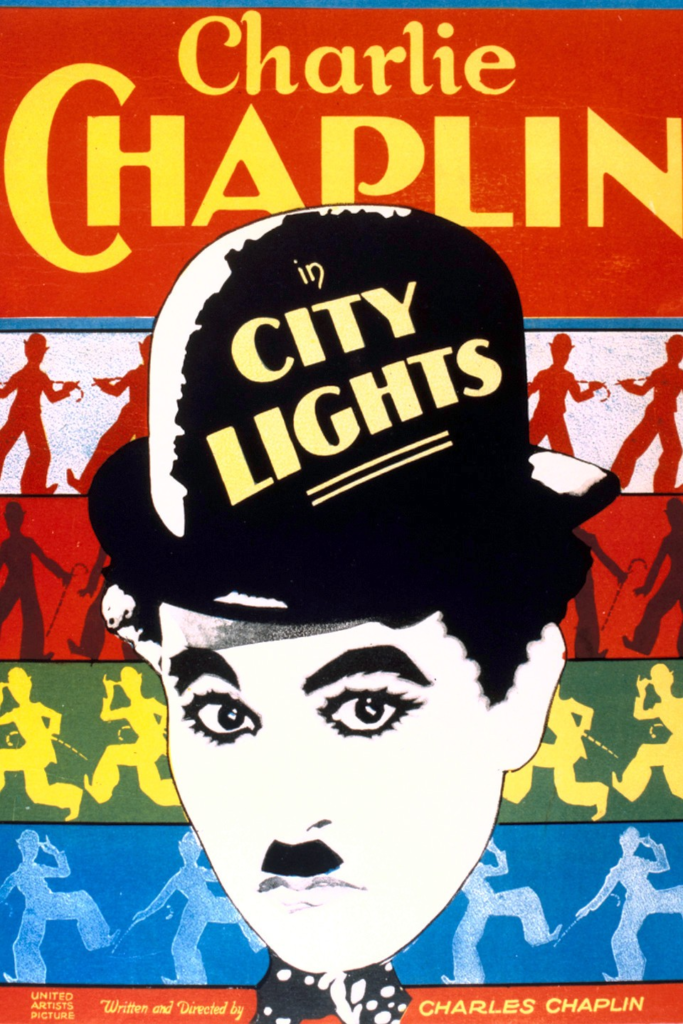City Lights Christian Review

There’s something truly magical about City Lights. If ever there was a film that could capture the essence of Charlie Chaplin’s talent, it’s this one. Released in 1931, it’s held up as a cinematic treasure, blending slapstick humor with deep, heart-wrenching emotion. But what really makes City Lights stand out for a Christian viewer is how it seems to mirror Biblical themes without trying too hard—those subtle touches of humility, love, sacrifice, and redemption that sneak up on you through every pratfall and bittersweet smile.
So, let’s talk about it, not just as a film, but as a reflection of the Christian spirit—an unexpected sermon in celluloid that shows how sometimes the greatest power is hidden in the humblest of hearts.
Meet the Tramp: A Drifter, Dreamer, and… Christ-like Figure?
Who is Chaplin’s Little Tramp, really? If you’ve seen him in other films—shuffling along in his too-big shoes, bowler hat tipped forward, cane swinging as he strolls—he’s almost like an old friend by now. But in City Lights, we see something more. He’s not just a comic character designed to make us laugh. Here, he’s a wandering soul, drifting through a world that barely notices him, and when it does, it’s often only to ridicule or chase him away. He’s not anchored to any place or person. No family, no home, no status. A true outsider. Sound familiar?
In a lot of ways, he’s a bit like those Old Testament prophets—wandering in the wilderness, misunderstood by everyone around them, and yet carrying a secret strength and wisdom that the world can’t quite fathom. Or, perhaps, he’s a bit like Christ himself—a humble, almost invisible figure, moving quietly through the chaos of the world, seeing beauty where others see only brokenness, and offering grace without expecting anything in return.
You see it most in his relationship with the blind flower girl. When she mistakes him for a wealthy gentleman, the Tramp doesn’t correct her. Not out of pride, but out of kindness. Because here, at last, is someone who sees him not for what he is—a shabby vagrant—but for something more. And in that moment, he commits himself to her, even though it means sacrificing his own comfort, even his safety.
Love That Speaks Louder Than Words
Chaplin made City Lights at a time when the talkies were taking over Hollywood. Silent films were being pushed aside, yet here was Chaplin, insisting on creating a nearly silent film in a world that was quickly filling up with sound. But isn’t that part of its beauty? It’s almost as if Chaplin knew that some of the most powerful things we say don’t need words at all.
And that’s a very Christian idea, too, isn’t it? Love doesn’t need to be shouted from the rooftops. It doesn’t demand recognition. Often, it’s found in the quietest gestures—a cup of water for the thirsty, a coat for the cold, a smile for the weary. The Tramp’s love for the flower girl is like that. Silent, steady, and real. It’s not flashy or grand. It’s in the little things—finding ways to earn money for her rent, protecting her dignity, doing whatever it takes to restore her sight, even if it costs him everything.
In one unforgettable scene, the Tramp enters a boxing match to win prize money for the girl. It’s classic Chaplin: hilarious, chaotic, and utterly ridiculous. But underneath the comedy, there’s something profoundly moving. He’s not a fighter. He’s completely outmatched. But he throws himself into it anyway. Not because he stands a chance of winning, but because love makes us do things we’d never imagine ourselves doing—things that defy reason and logic. It’s a perfect picture of the kind of sacrificial love Christ calls us to, the kind that goes beyond self-preservation and enters into the realm of self-giving.
Laughter and Tears: A Dance of Joy and Sorrow
What makes City Lights so unique is its ability to dance between comedy and tragedy without missing a beat. One minute, we’re laughing ourselves to tears, watching the Tramp dodge punches in the boxing ring, and the next, we’re genuinely moved as he gazes at the flower girl, knowing he can never be the man she thinks he is. It’s almost like a Psalm brought to life—the kind that begins with shouts of joy and ends in quiet, reflective sorrow. Or maybe it’s the other way around.
This delicate balance of joy and sorrow is something Christians understand well. We know that life is full of both—the beauty and the brokenness, the laughter and the loss. And yet, somehow, God weaves it all together into a greater story. City Lights does that too. It takes these seemingly disconnected moments of slapstick and sentiment and stitches them into a tapestry that’s both absurdly funny and deeply, painfully human. And by the end, we’re left with something that feels less like a movie and more like a prayer—a yearning for something more, something better, something truer than what the world around us offers.
The Power of Grace in the Final Scene
And then, there’s that final scene. If you’ve seen City Lights, you know the one. If you haven’t, well, I won’t spoil it for you, but let’s just say it’s a masterclass in emotional storytelling. It’s a moment of pure, unfiltered grace, where the flower girl, now able to see, realizes who the Tramp really is. And what does she do?
She doesn’t laugh. She doesn’t turn away. She reaches out and touches his hand. It’s a gesture so simple, and yet, in that moment, it’s everything. She sees him, really sees him, for the first time. And for the Tramp, who’s spent his life being invisible, overlooked, and unwanted, that touch is like a benediction.
For Christian viewers, this moment is almost sacramental. It’s a picture of what happens when we finally see others—not as the world sees them, but as God sees them. With eyes of grace and compassion, unclouded by judgment or prejudice. It’s a moment that echoes Christ’s own words: “Whatever you did for one of the least of these brothers and sisters of mine, you did for me” (Matthew 25:40).
A Film for the Weary and the Hopeful
Eighty-plus years later, City Lights still shines. It’s a film that reminds us that love is more than words, that grace is stronger than appearances, and that sometimes the greatest heroes are the ones who go unnoticed. In a world that’s constantly measuring worth by wealth, status, and power, City Lights points us back to a different kind of kingdom—a kingdom where the meek inherit the earth, where the first are last, and where the lowly Tramp, with his silly walk and sad smile, becomes a figure of profound beauty and grace.
So, if you’re in need of a little hope, a little laughter, and a reminder that true greatness often looks a lot like humility and love, give City Lights a watch. It’s more than a film—it’s a small, silent testament to the power of grace.
Final Rating: 10/10






